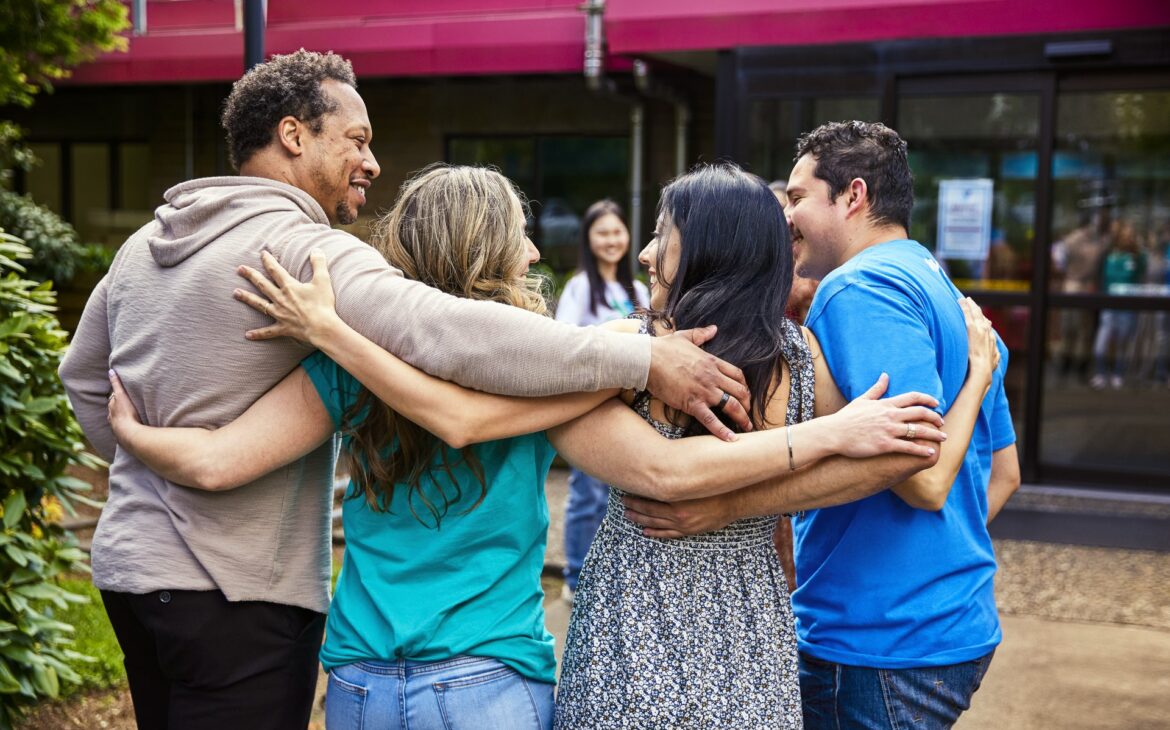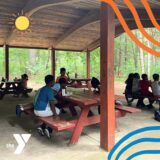Answering the Call to Treat the Hidden Epidemic of Loneliness
Harnessing the power of physical spaces and community to end social isolation

We live in a region of world class healthcare research, innovation, and delivery yet there is a growing epidemic in our society that cannot be treated with medication and therapy, it requires a different solution but one that is increasingly elusive for people of all ages: community.
As was recently reported in the Boston Globe and other outlets, the nation’s top doctor, U.S. Surgeon General Vice Admiral Vivek Murthy who served at Brigham and Women’s Hospital, has some blunt news for Americans: social isolation and loneliness is making us sick and leading to more serious health issues that is shortening our life spans.
The report released by the Surgeon General is very clear: lacking social connection can increase the risk of premature death to levels comparable to smoking 15 cigarettes a day. “Humans are wired for social connection, but we’ve become more isolated over time and social connection is as essential to our long-term survival as food and water,” the report states. “But today, loneliness is more widespread than any other major health issues in the U.S. Our epidemic of loneliness and isolation is a major public health concern.”
The good news is that with intentionality and focus, we can reverse this trend – across the generational spectrum – and create spaces where communities can thrive for those who need it most. The YMCA of Greater Boston, America’s First Y, was founded 173 years ago to create connection and opportunity for newcomers to the City and ever since have sought to create affordable, accessible community alongside services aimed at healthy development, wellness, stability, opportunity, and thriving.
Now, as we take on the mounting headwinds in building connection- the remnants of a pandemic requiring physical distancing, an increase in virtual work, the negative side of technology’s ability to connect, a divisive political environment- we seek to meet the moment alongside partners by building even greater pathways to connection and community for people of all ages.
At the end of the day, it is simple: It is the person to person contact that humanizes us and provides the enrichment of our lives even more so when we’re able to connect with folks with whom we might not otherwise come into contact. To do this, we must provide more than access. We must provide invitation to convenient, safe, dynamic spaces for people of all ages, what the sociologist Eric Klinenberg called “Palaces for the People.” We must double down on our imagination and investments in these types of spaces as we consider transitions in downtown spaces and more. The Mayor’s Open Streets and Block Parties this past summer exemplified this approach.
Loneliness doesn’t discriminate. It is not centered on some innate ability to make friends. It doesn’t consider your age, race or ethnicity, gender, or socioeconomic status. Loneliness can take its toll on anyone, and while older adults come to mind when we think about this issue, we also recognize that young people are among the vulnerable as our neighbors faced with economic distress or safety concerns.
Research has consistently shown that social connection and community engagement play a pivotal role in the healthy development of youth, helping them build a strong sense of themselves. This summer, hundreds of teens will find jobs and belonging at the Y and all Boston’s teens will receive a free summer membership. Another 6,000 young people will enroll in one of our summer camps.
To reverse the growing trend of loneliness and isolation, it is essential that we recognize its far-reaching consequences on not just the development of young people, and the well-being of older adults, but also on the single young professional remote worker new to Boston, the newcomers to our country, the widow or widower, and even the empty-nester.
The team here at the YMCA of Greater Boston does not have all the answers, but we have the community, the infrastructure, and the will to be a part of the solution in disrupting this public health crisis whether in providing day services for newcomers or babysitting while young parents exercise. By providing innovative programs and spaces for social connection, social service providers like us can revitalize communities and help people of all ages build healthy, fulfilling lives and build community.
We have heard the nation’s doctor’s diagnosis. In this case, it will take all of us to treat what ails us.
David Shapiro is the President and CEO of the YMCA of Greater Boston, America’s first YMCA.


